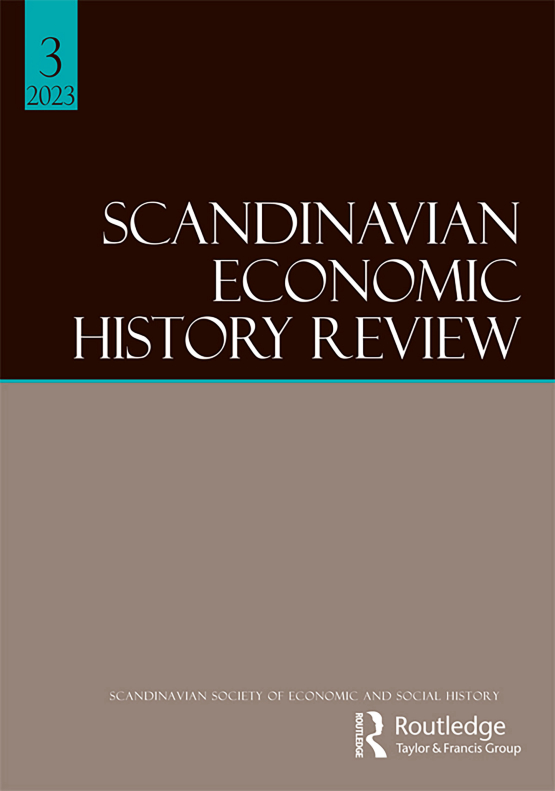Submit a Manuscript to the Journal
Scandinavian Economic History Review
For a Special Issue on
Patent history and economic growth: Institutional frameworks, practices, and global perspectives
Abstract deadline
Manuscript deadline

Special Issue Editor(s)
Fredrik Tell,
Uppsala University
fredrik.tell@fek.uu.se
Michelangelo Vasta,
University of Siena Michelangelo
vasta@unisi.it
Patent history and economic growth: Institutional frameworks, practices, and global perspectives
Aims and scope
This special issue seeks to deepen our understanding of the historical role of patent systems in fostering innovation and economic growth. Patents have been critical in shaping economic activity, influencing industrial policy, and promoting technological progress. However, the complexities surrounding patent systems—both in terms of their institutional development and their economic impact—warrant further scholarly exploration. This special issue aims to address such complexities and provide a comprehensive view of how patent systems have evolved and interacted with economic growth.
The focus on patent history will contribute to ongoing debates on the relationship between legal institutions and economic outcomes, offering new insights into how patents have functioned as both enablers and barriers to innovation throughout history.
Objectives of the Special Issue
- To explore the historical evolution of patent systems and their impact on economic growth and development.
- To examine the institutional frameworks surrounding patent systems, including the formation of patent offices and international agreements.
- To analyse the role of key actors in the patent system, such as inventors, corporations, patent agents, and intermediaries.
- To investigate patenting practices across different historical and international contexts.
- To introduce new methodological approaches for researching patent history by using historical data.
Key themes and contributions
This special issue encourages submissions on, but not limited to, the following themes:
Patent Systems as Institutional Frameworks for Economic Activity
- The emergence and development of patent systems.
- Controversies surrounding patent legislation and procedures.
- The role of patent systems in shaping economic and industrial policies.
- Patent reforms, legislation, and administrative challenges.
Workings of patent systems
- The role of patent offices and the evolution of their functions.
- The influence of international organizations and agreements on patenting practices.
- The activities of patent intermediaries, such as patent agents and lawyers.
- Markets for ideas: patent trade, transfers, and licensing.
Organizing innovation through patenting
- Corporate strategies for managing intellectual property rights.
- The role of patent departments and engineers within organizations.
International patenting
- International conventions and their influence on patenting behavior.
- Patenting as a mechanism for technology diffusion across borders.
- The role of multinational enterprises in global patenting practices.
Researching Patent History
- Methodological advances in patent history research.
- New sources and archival records related to patent systems.
- The development of patent databases and techniques for linking data.
Contribution to the Literature
This special issue will contribute to both economic history and innovation studies by bringing together historical analysis and economic theory. By examining patents through an interdisciplinary lens, it will illuminate the diverse ways in which patent systems have contributed to economic growth across different periods and regions. In addition to historical case studies, the issue will also highlight recent methodological innovations in patent research, encouraging scholars to explore new data sources and analytical techniques.
Target audience
The target audience for this special issue includes:
- Economic historians, innovation scholars, and legal historians.
- Economists focused on institutional economics and development.
Submission Instructions
Timeline and submission instructions
The following timeline apply to the submission, review, and publication process:
- Submission Deadlines: Proposal (maximum 1000 words): 31 October 2025; Full manuscript: 31 December 2025
- Review Period: 1 January, 2026 – 31 December, 2026
Accepted papers will be published during 2027. Please note that the final publication decision is made by the Editor-in-Chief of SEHR. To submit a proposal for the special issue, please send an email to the guest editors with a PDF document by 31 October 31st contains the following:
A 1000-word (maximum) abstract on the proposed article with a tentative outline of the article’s contents and organization.
A brief CV (no more than 2 pages)

